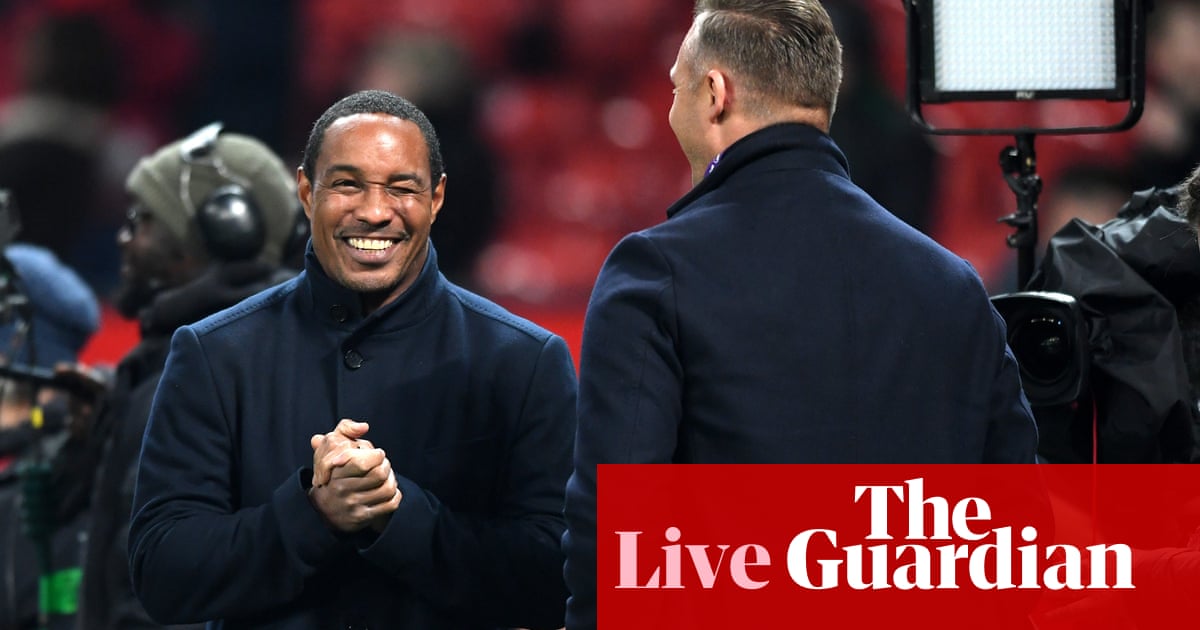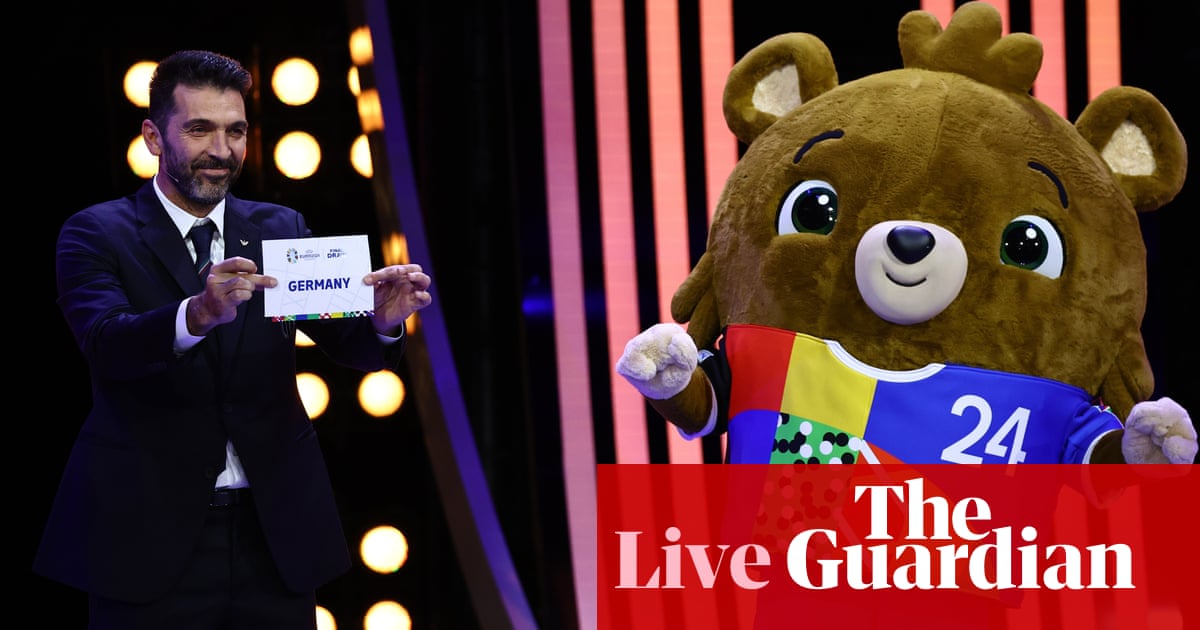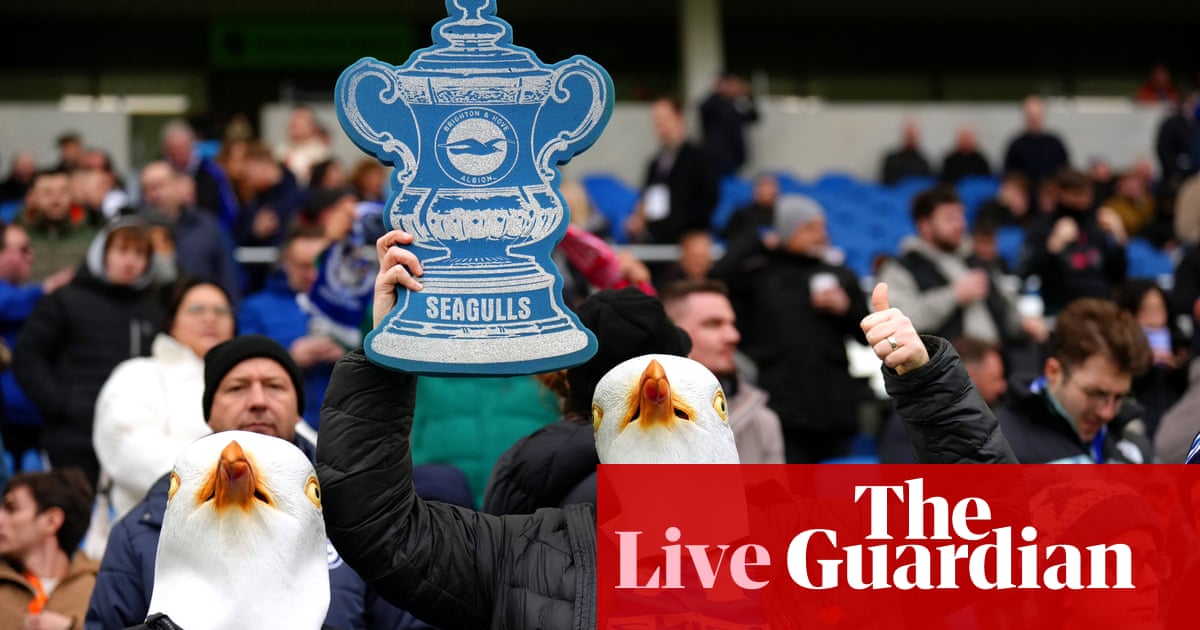
Just off the Corniche, the waterfront drag that runs along Doha’s bay to the city, stands the countdown clock, a digital hour glass that lets everybody know – in days, hours, minutes and seconds – how long there is to go until the big kick-off.
It was in December 2010 that Qatar was awarded the right to host the 2022 World Cup and, if you rack your memory hard enough, you will still hear the gasps and howls of indignation from the conference hall in Zurich. It is rather closer now – 235 days away, according to the clock on Thursday – and the focus will be sharpened significantly on Friday at 5pm BST when the star-studded draw ceremony is held.
The England manager, Gareth Southgate, will be there and he will hope that the draw assistants, who include Cafu and Lothar Matthäus, winning captains with Brazil and West Germany respectively, can do him a favour. England are in the top pot of seeds and Southgate would probably prefer to avoid Germany and the Netherlands from Pot 2. He has had the luck of the draw at his previous two tournaments, the 2018 World Cup and Euro 2020, when his team reached the semi-final and final respectively. Can it endure?
It would be wrong to describe the mood among the local people in Doha as one of overwhelming excitement. They are looking forward to the tournament but the trappings of it are not exactly everywhere, even if there are advertising billboards bearing the slogan: “Now Is All.” It is all pretty conservative and restrained.
Southgate, though, can feel the tingle of anticipation, the flood of World Cup memories, mainly from his childhood. Like everybody, the 51-year-old has vague recollections of his first finals – Argentina ’78, when England did not qualify – and vivid ones of the next, Spain ’82. It was when Italy beat West Germany in the final, having knocked out Brazil in the second group stage after that 3-2 epic.
“Seventy-eight was the first one I remember … the ticker tape, having to support Scotland, which was painful, but I did,” Southgate said. “And then ’82 … not only loving watching England but the tears when Brazil went out and watching the final with Italy winning.
“They’ll show videos at the draw of previous tournaments and we won’t be shown in many of them, so you’ll remind yourself of that. The World Cup is very special. It’s the pinnacle. It’s still the ultimate prize.”
Yet does this edition not feel a little odd and unsettling given the issues in Qatar, namely the Gulf state’s woeful labour rights record, its outlawing of homosexuality and its male guardianship system that denies women the right to make key decisions about their lives?
“It’s the first World Cup in a Muslim country, the first in the Middle East and it’s the first World Cup in the middle of the season so it’s a hugely different feel, culturally,” Southgate said, calibrating his answer carefully. “But I went to the World Cup in South Africa [in 2010] – the first time on the continent of Africa – and it was an amazing experience. I went to Brazil [in 2014] – again, an amazing experience.
“Part of the World Cup is visiting places you’ve not had the chance to go to. I love travel and if there’s a trip to go somewhere to improve my knowledge of the world and culture, I’m the first name down.”
Southgate is not blind to the social situation in Qatar. Far from it. Neither are his players, especially after they were given a presentation on it in the early part of last week. The midfielder Jordan Henderson described the content as “shocking” and “horrendous”.
Writing in the Guardian last Thursday on the subject of migrant workers who have toiled to build the World Cup stadiums and supporting infrastructure, Nicholas McGeehan – a director of FairSquare Research and Projects – said there had been “thousands of deaths of young men in Qatar, significantly more than half of them unexplained. To that can be added millions of dollars of wage theft that have left workers and their families from some of the world’s poorest countries indebted and destitute.”
The Qatar authorities can point to reforms and progress, including the removal of the kafala – or sponsorship – system under which workers were unable to change jobs without their employer’s permission, and the introduction of a new minimum wage. But Peter Frankental of Amnesty International has said: “New laws are only being patchily enforced and the fact remains that many migrant workers have suffered chronic overwork in Qatar or had their wages withheld by unscrupulous employers.”
The LGBTQ+ community, represented by an international grouping of 16 organisations, wrote to Fifa and Qatar’s Supreme Organising Committee to make eight demands. They included explicit safety guarantees for World Cup attendees from the community, a clear welcome and the freedom of expression inside and outside stadiums. The SC has yet to respond. Its position is that everybody is welcome.
How can Southgate and the other participants at this World Cup like no other strike the right tone? By knowing that they can still cherish it and hold nothing back on the pitch as long as they simultaneously do everything via their platforms to highlight injustice and drive change.
England have earmarked the Souq Al Wakra hotel and the Al-Wakrah sports club to the south of Doha as their bases for glory. Five minutes apart from each other, the 101-room hotel that backs on to the beach is unprepossessing, certainly by comparison with some of the upmarket alternatives in the world’s richest per-capita country.
The training ground, meanwhile, has a slightly old-school feel. It was established in 1959 and the trophy cabinet in the main building could have come from any clubhouse in England. Not that the playing surface looks anything less than pristine.
Southgate is in this to win it. “What have we said to the team this week?” he said. “That if we can get to a semi-final, we can get to a final – which we did. And if we can get to a final, we can win.” The pathway is about to be revealed.












